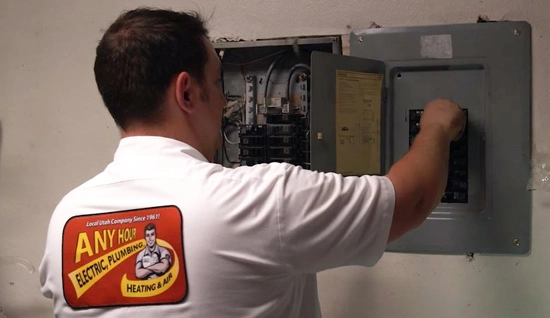Homeowners often overlook the importance of regular plumbing maintenance. But neglecting your plumbing can lead to costly repairs down the road. In this blog post, we will discuss four plumbing maintenance tasks that you can do yourself. By doing them on a regular basis, you can help prevent leaks, clogs, and other common plumbing issues.
Breaker panels, or fuse boxes in some older homes, are where all the wires in the house go to the outlets in each room. When a breaker trips, it sensed that more electricity is going out over the wire than should be. The breaker cuts the electricity so the wire doesn’t overheat. This usually happens when you pull more electricity than a wire can handle. If your breakers keep tripping, your circuits keep overloading.
A tripping breaker is actually a good sign. It’s your home’s way of telling you that the load on that circuit is too high and that something needs to change. That means the breaker is doing its job. If your breaker trips all the time, though, it can wear out. Breakers can weaken over time like anything else mechanical. If you’re flipping it a lot, it will wear out faster.

If your breaker always trips when you turn on the vacuum while using the microwave, you know why it’s happening. It gets dangerous if your breaker keeps tripping and you don’t know why. Same thing if you flip the breaker and it immediately trips again. Another major problem is a breaker panel that doesn’t trip when it should. That means your wires could overheat and short circuit without ever warning you.
In any of these cases, it's a good idea to call an electrician. Never upsize a fuse or breaker. Doing that could stop the trips, but a larger breaker could make the real problem much worse. Allowing more electricity than a line can handle can cause the wires to overheat and start a fire. The best option is often to install a new circuit. Check the breaker size first as you might need to run a larger wire to handle the amps.
| Amperage Capacities for Standard Non-Metallic (NM) Cable | |
|---|---|
| 14-gauge wire | 15 amps |
| 12-gauge wire | 20 amps |
| 10-gauge wire | 30 amps |
| 8-gauge wire | 40 amps |
| 6-gauge wire | 55 amps |
| 4-gauge wire | 70 amps |
| 3-gauge wire | 85 amps |
| 2-gauge wire | 95 amps |
Electrical work can be dangerous if you aren’t familiar with it. An electrician has the skill to get the job done without injury. If you have a problem and don't have an electrician you trust, Any Hour Services would be happy to help. One of our licensed electricians can test your circuits to find the root of the issue. They can also test your breakers to make sure they’re protecting the wires the way they should. You can give us a call or schedule an appointment online.